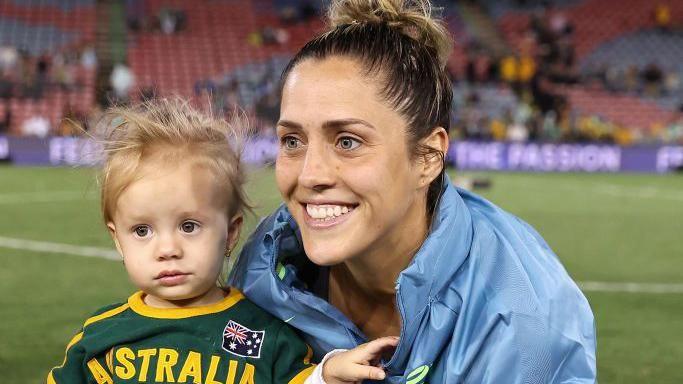FIFA has made changes to further strengthen protections for female footballers and coaches during pregnancy and after childbirth, as well as non-biological motherhood.
This includes extending the minimum 14 weeks of paid maternity leave to coaches, which previously only applied to players.
If they choose to adopt, players and coaches are given time off depending on the age of the child, and the non-biological parent is given family leave.
Clubs will be able to sign players outside the transfer window if there are changes to their player registrations and a squad member goes on maternity, adoption or family leave.
Players also have the right to request to miss training or matches for menstrual health reasons but will still receive their full salary.
The changes by soccer's world governing body will come into effect on June 1 and were approved by the FIFA Council in May.
In April, BBC Sport spoke to several Women's Super League players and coaches about the challenges and barriers they faced as mothers.
“You hear a lot of bad stories in Europe about players who didn't get any support at all,” said Melanie Leupolz, the Chelsea and Germany midfielder.
“You just need to understand the support that surrounds football. It doesn't matter what happens on the pitch. We are footballers who have to compete and that shouldn't change.”
In May, BBC Sport revealed that clubs are due to receive guidelines from FifPro ahead of the new season to help players return to football after giving birth.
The guidelines are set to cover a variety of topics, including fitness, nutrition, and parenting.
“This is a big statement,” former United States coach and two-time World Cup winner Jill Ellis said of the latest changes introduced by FIFA.
“This is a big step and a huge advancement towards really normalizing the life experiences that we have as women.
“What we want to offer now at every level is the opportunity for professional athletes to become mothers.”
A PFA spokesman said: “These new measures have been heavily influenced by feedback from the players' union and our members and this is a welcome and positive step in the right direction.”
“But it's important that we continue our joint efforts to improve the rights and conditions for female footballers and ensure that elite athletes can also thrive as working mothers.”
“It's as much about the culture we create within the game as it is about rules and regulations.”
FIFA changes breakdown
-
Maternity leave: Players and coaches will be entitled to a minimum of 14 weeks paid leave.
-
Adoption Leave: Players and coaches are entitled to a minimum of eight weeks of paid leave if the adopted child is under the age of two. This period of paid leave is reduced to four weeks for children between the ages of two and four, and further reduced to two weeks for children four or older.
-
Family Leave: Any female player or coach who is not a biological mother will be provided with a minimum of eight weeks of paid leave.
-
Clubs may register players outside of the registration period to temporarily replace other players due to the birth, adoption or family leave.
-
Players returning to football after a break can register outside of the registration period.
-
Athletes can request to miss training or matches for menstrual health reasons and still receive full pay.
-
Clubs are encouraged to provide a family-friendly environment


